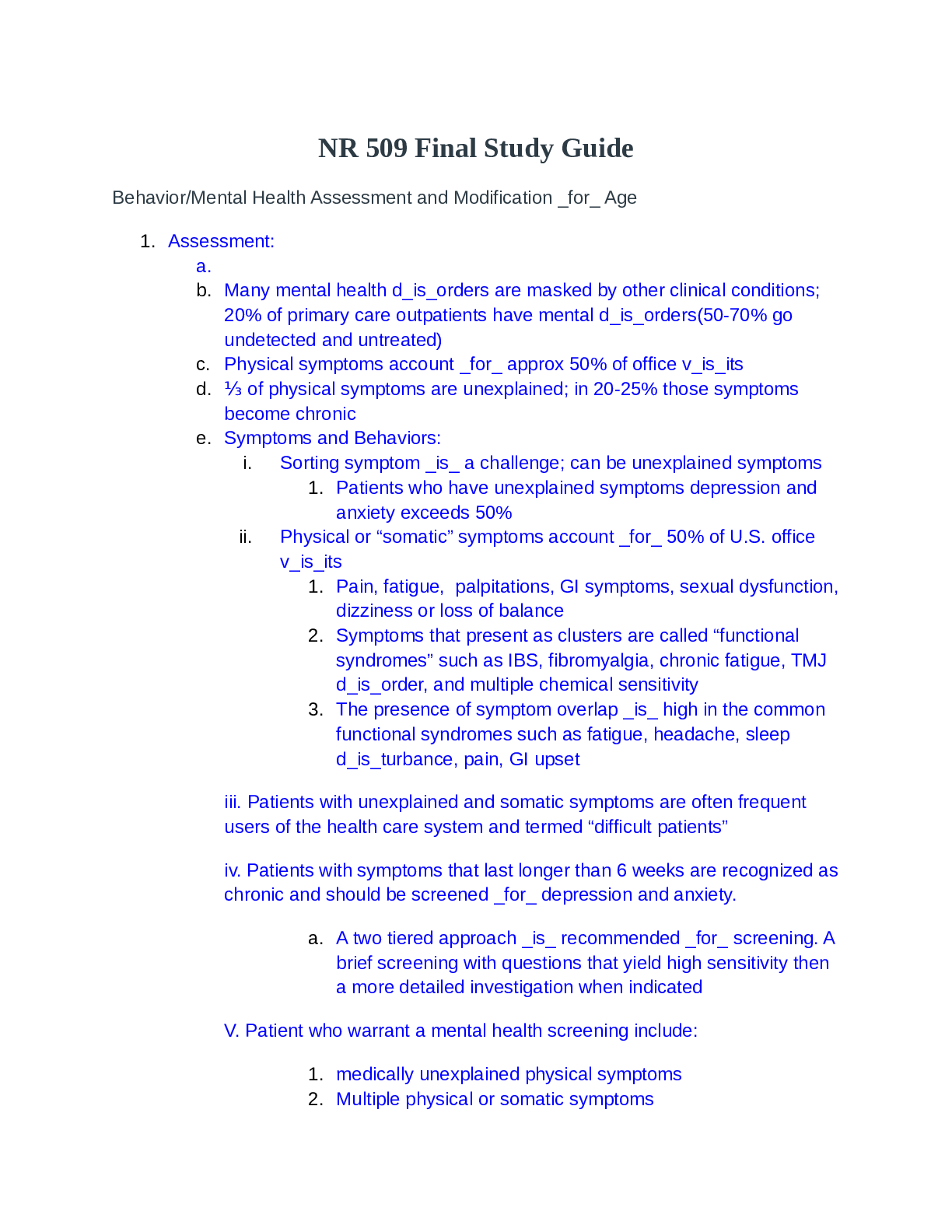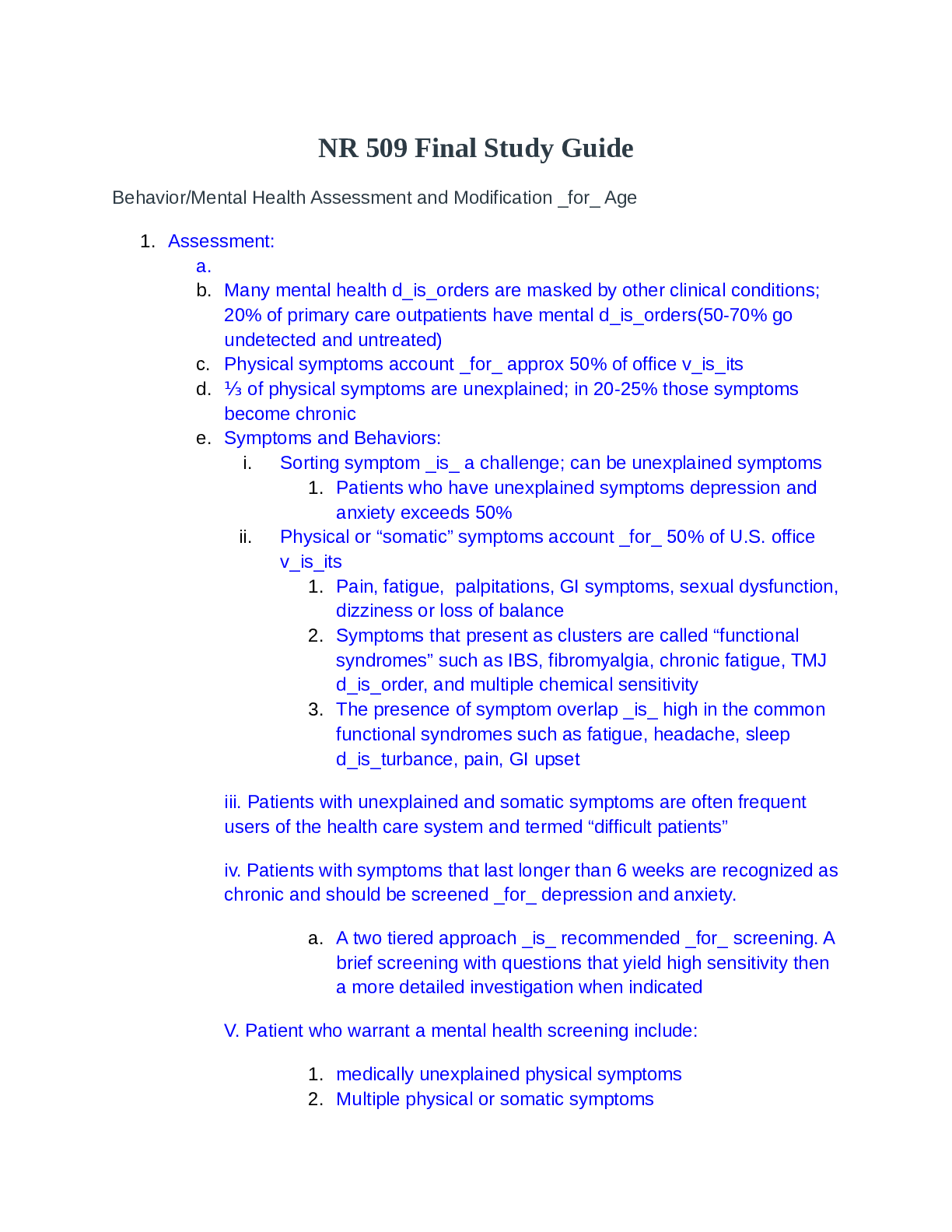NR 509 Final Study Guide week 8
Course
Music
Subject
Chemistry
Category
Study Guide
Pages
63
Uploaded By
ATIPROS
Preview 5 out of 63 Pages


Download all 63 pages for $ 15.00
Reviews (0)
$15.00
